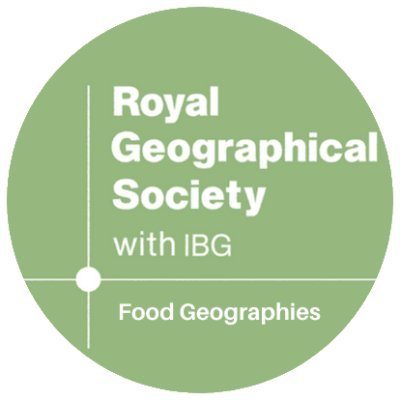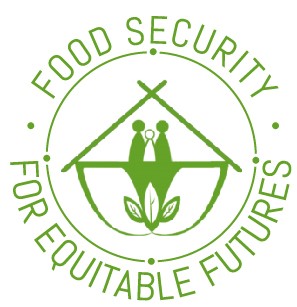RGS Food Geographies Research Group (FGRG) invites session proposals for the RGS-IBG Annual International Conference 2023
Mohammad Mahbubur Rahman
Greetings!
I hope you are all doing well.
Please see below FGRG's call for session proposals for this year's RGS-IBG annual conference in London. Jack Pickering is coordinating this year's FGRG call for sessions. Jack's contact details are at the end of this email. It's a timely and important conference theme, well aligned with our food geographies work, so we look forward to receiving excellent session proposals.
Please feel free to share the call with other networks and platforms - we are keen to extend our network of practice, including working with other research groups on this topic.
Regards,
Mahbub (Sent on behalf of Prof. Damian Maye, Chair of the RGS Food Geographies Research Group)
Membership Officer, Food Geographies Research Group (FGRG)
The RGS Food Geographies Research Group (FGRG) invites session proposals for the RGS-IBG Annual International Conference 2023.
The conference will take place in London and online, from the evening of Tuesday, 29 August, to Friday, 1 September 2023. There will be limited opportunities to participate in hybrid sessions. Further details of the conference arrangements are given on the RGS website.
Professor Harriet Bulkeley will chair the conference with the theme of ‘Climate Changed Geographies’:
If once confined to specialist branches of the physical sciences, understanding the nature, dynamics, and meaning of climate change has now spilled out across the academy and society, becoming a subject of sociology, art, computing and chemistry, and of course, geography. Yet what it means to know and inhabit a climate-changed academy and how this, in turn, shapes how we come to understand climate change and how it is changing the worlds with and around us is more often taken for granted than explored.
With the theme, Climate changed geographies, the RGS-IBG 2023 conference invites a conversation about how climate change is, and is not, changing our discipline – our ways of knowing, exploring, understanding, and acting geographically – and with what consequences. It also opens up debates about the kinds of geographies – urban, political, social, cultural, economic, regional, glacial, fluvial, and more – that are and are not being changed by climate change. It will bring specific focus to work across the discipline and in related fields that seek to understand how climate change impacts our social and natural worlds and how it shapes imaginaries, identities, conflicts, communities, places, and processes. Taking forward these ideas also means bringing questions of how the notion of change has been addressed geographically across the wider lexicon used to describe and determine climate-changed pasts and futures, notions of transition, and increasing transformation dominate. This theme invites geographers to consider how ideas of time and change, past, future, and present, are being addressed in the discipline and the ways in which these might be productively bought into dialogue with climate change.
You can find out more at: https://www.rgs.org/research/annual-international-conference/chair-s-theme/.
The Royal Geographical Society particularly welcomes submissions for the conference programme, which engages directly with this theme and others focusing on all areas of geography.
For each RGS annual conference, the Food Geographies Research Group aims to sponsor a set of sessions reflecting the diverse range of research interests pursued by members of the Group. We encourage and welcome interesting session proposals that advance the sub-discipline. Still, priority will be given to sessions that speak directly to the conference theme (i.e., the climate-changed food geographies). The Committee will review session proposals and may provide feedback to convenors, if necessary, to align with the theme.
Topics might include, for example:
Sessions that consider how climate change affects how we think about food geographies and how we research climate-changed food landscapes. Alongside theoretical and methodological contributions, this could include speculative and/or deliberative approaches to food system futures, planetary social thought, and the Anthropocene in a world being transformed by climate change.
Food practices and geographies that respond to a changing climate through transformation, mitigation, or limitation, or engagements with concepts of resilience, care, and repair in the face of climate-related shocks.
Transitions and transformations in agriculture and food production related to climate change, including novel foods and new/emerging or controversial technologies, new production methods, the politics of food system transformations, and edible landscape development.
Controversies and political contestation related to the racialized impacts of climate change on agriculture and food consumers, including food geographies of land ownership, indigenous activism, decolonization, and the place of existing food movements (e.g., agroecology/organics/permaculture).
Food consumer movements and cultures respond to climate change, particularly concerning well-being, mindful eating, and eco-anxiety topics in a climate-change world.
A range of topics and themes that help us to address the concrete effect of climate change on food geographies and our work as food geographers, such as:
The effect of climate change on particular foodscapes or landscapes in general,
Changing rural and urban relationships to food production.
The relationship between food poverty and climate change and the involvement of food in other inequalities along the lines of race, gender, sexuality, disability, and class, among others.
Relationships between climate change, zoonotic pandemics, and ongoing processes in food systems.
Food policy responses to climate change.
The place of livestock and pastoral agriculture in a climate-changed world
Dietary transformations influenced by Climate change, including the politics of plant-based diets.
The Group particularly welcomes sessions from ECRs or PhD students exploring areas within the food geographies field.
We also strongly support co-sponsorship sessions with other RGS-IBG groups, if appropriate. Please check the RGS website for details of other research groups: https://www.rgs.org/research/research-groups/.
Sessions may take the form of presented papers, panels, practitioner forums, discussions, or workshops. Innovative sessions and formats are encouraged. Proposals should include the following:
1. Title of the session.
2. Name of Co-sponsoring groups, if applicable
3. Name and Contact Details for Session Convenors
4. Abstract, outlining the scope of the session - 300 words max.
5. Number of session timeslots that are sought
6. Indication of preferred organisation of session, e.g. 4 x 20min presentation, plus 20min discussion or 5 x 15min presentation, with 5min question for each. We also welcome creative formats specified in advance. Sessions last 1 hour 40 mins.
7. Whether you envisage an online, in-person, or hybrid format. Please note that the RGS anticipates very limited support for hybrid formats, so reasons/justifications for why a hybrid format is necessary would be appreciated.
The Deadline for proposals for FGRG-sponsored sessions is Thursday, 2nd March 2023.
Proposals for or questions about FGRG-sponsored sessions should be sent to:
Jack Pickering, Food Geographies Research Group Conference Officer at jack.pi...@sheffield.ac.uk
Mohammad Mahbubur Rahman
Membership Officer, Food Geographies Research Group (FGRG)
Royal Geographical Society
(with the Institute of British Geographers),
1 Kensington Gore,
London, SW7 2AR, UK.

To subscribe to the FOODGEOGRAPHIES list, click here.
PhD Student, Department of Sociology
Lancaster University
B 105, Bowland North
Lancaster, UK, LA1 4YT
Pronouns: He/him

Contact me on Teams (internal use only)
Doctoral Researcher at 'Food Security for Equitable Futures' project
 You can follow Food Security for Equitable Futures on Twitter at @Food_Equity, on Facebook at @FoodEquity and keep up with project updates through our project website.
You can follow Food Security for Equitable Futures on Twitter at @Food_Equity, on Facebook at @FoodEquity and keep up with project updates through our project website. P Before printing, please consider the environment! |
Latest Award:
|
- Assessing Loss and Damage of Low-Exposed Sudden-Onset Disasters: Evidence from the Marginal Salt Cultivators of Kutubdia Island, Bangladesh
- Perception of Vulnerable Ultra-Poor Women on Climate Change Impacts and Local Adaptation in a High Flood Prone Area of BangladeshPerception of Vulnerable Ultra-Poor Women on Climate Change Impacts and Local Adaptation in a High Flood Prone Area of Bangladesh
- Perceived Human-Induced Causes of Landslide in Chattogram Metropolitan Area in Bangladesh
"N.B: I work flexibly and may send emails outside normal working hours. Your immediate response is not expected.”
